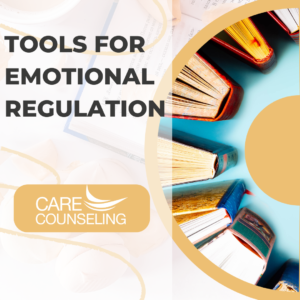Tools for Effective Emotional Regulation
 Emotional intelligence, the ability to recognize, understand, and manage emotions, is a crucial life skill that significantly impacts a child’s well-being, relationships, and overall success. As a parent, you play a vital role in helping your child develop strong emotional intelligence and effective emotional regulation techniques.
Emotional intelligence, the ability to recognize, understand, and manage emotions, is a crucial life skill that significantly impacts a child’s well-being, relationships, and overall success. As a parent, you play a vital role in helping your child develop strong emotional intelligence and effective emotional regulation techniques.
Understanding Emotional Intelligence
Emotional intelligence encompasses a range of skills that enable individuals to navigate their emotions and interactions with others. These skills include self-awareness, self-regulation, empathy, and effective communication. Developing emotional intelligence equips children with the tools they need to handle challenges, build positive relationships, and make thoughtful decisions.
The Role of Emotional Regulation
Emotional regulation is a fundamental aspect of emotional intelligence. It involves the ability to manage and respond to emotions in a healthy and adaptive manner. Teaching your child effective emotional regulation techniques empowers them to navigate difficult situations, cope with stress, and build resilience.
Tools for Supporting Emotional Regulation
- Model Emotional Regulation: Children learn by observing their parents. Display healthy emotional regulation by expressing your emotions in constructive ways. Describe how you’re feeling and discuss how you manage those feelings.
- Practice Mindfulness: Mindfulness techniques, such as deep breathing, meditation, and grounding exercises, can help children center themselves during moments of heightened emotion. Practice these techniques together to make them a part of daily life.
- Identify Emotions: Encourage your child to label their emotions accurately. Use a feelings chart or a feelings wheel to help them expand their emotional vocabulary and better understand their emotions.
- Create a Safe Space: Establish an environment where your child feels comfortable expressing their emotions without fear of judgment. Let them know that it’s okay to feel all emotions and that you’re there to listen and support.
- Encourage Verbal Expression: Teach your child the importance of expressing their feelings through words. Encourage them to share what they’re experiencing, whether it’s joy, frustration, or sadness.
- Empathy Building: Help your child understand that others have feelings too. Discuss different perspectives and encourage them to imagine how someone else might be feeling in a given situation.
- Problem-Solving Skills: Guide your child in problem-solving techniques when they encounter challenging situations. Teach them to brainstorm solutions, consider the pros and cons, and make informed decisions.
- Physical Activity: Engaging in physical activities, whether it’s a walk, bike ride, or yoga session, can help release built-up tension and promote a sense of calm.
- Use Creative Outlets: Art, journaling, music, and other creative outlets can provide a healthy way for your child to express their emotions. Encourage them to explore different mediums that resonate with them.
- Establish Routine: A consistent daily routine provides a sense of stability that can contribute to emotional well-being. Consistency can help children anticipate what’s coming next and feel more in control of their environment.
- Limit Screen Time: Excessive screen time can impact emotions negatively. Set limits on screen time and encourage other activities that promote emotional well-being.
- Teach Problem-Solving: Teach your child to identify challenges and brainstorm solutions. This fosters a sense of agency and control over their circumstances.
- Acknowledge Achievements: Praise your child’s efforts to manage their emotions effectively. Celebrate their progress as they develop emotional intelligence.
- Offer Comfort: Sometimes, all a child needs is a comforting presence. Let your child know that you’re there for them and provide a hug or a listening ear when needed.
Cultivating emotional intelligence and effective emotional regulation skills in your child is a gift that will serve them throughout their lives. By modeling healthy emotional expression, practicing mindfulness, and encouraging open communication, you empower your child to navigate emotions in a constructive manner. Remember that every child is unique, and the journey toward emotional intelligence is ongoing. Be patient, supportive, and consistent in your efforts, and you’ll help your child build a strong foundation for emotional well-being and success.



























